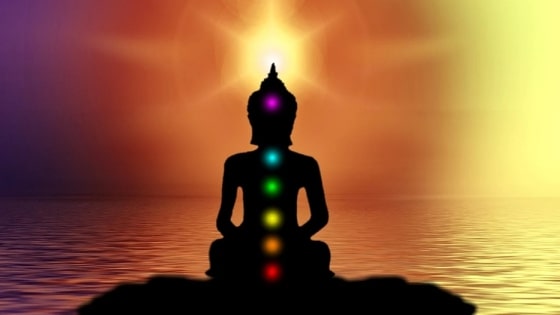Buddhism and Hinduism
Two similar religions with many differences
Buddhism and Hinduism are two of the most important religions in the world. On this section of the website, you can explore various articles to understand both their differences and similarities.
What are Buddhism and Hinduism?
✦ Buddhism
Buddhism is a philosophical, spiritual, and religious doctrine. Essentially, it provides a path to achieving individual mental peace and personal transformation. It includes various traditions, religious beliefs, and spiritual practices attributed to Gautama Buddha. Most of these practices aim to overcome suffering (dukkha) and the cycle of death and rebirth (samsara). Consequently, practitioners strive to attain Nirvana, a state free from desires and suffering, or follow the Buddhist path toward enlightenment and spiritual awakening. The Buddhist path guides us toward understanding our own potential.
The religion originated in India in the 6th century BCE when Shakyamuni (Siddhartha Gautama) experienced a spiritual awakening through meditation and ascetic practices. His path included ethical training and meditative exercises such as dhyana (a type of meditation) and mindfulness. The term Buddha refers to a person who attains enlightenment; it is a title given to those who achieve complete mental tranquility.
Read: Who Was Buddha?
Beliefs
Buddhism offers teachings and practices to anyone seeking spiritual development. Its main practice is meditation, which fosters awareness, kindness, and wisdom. Additionally, practitioners take refuge in the Buddha, the Dharma, and the Sangha. They observe moral precepts, practice monasticism, meditate regularly, and cultivate the Paramitas (perfections or virtues).
✦ Hinduism
Hinduism is one of the oldest religions in the world, originating in India. Today, it is the third most widespread religion after Christianity and Islam. Hinduism is a fusion of various Indian cultures and traditions, making it both broad and diverse. Unlike many religions, it has no single creator and recognizes millions of gods.
Its practices are based on ancient scriptures (dating from 1300–1000 BCE), such as the Vedas, Upanishads, Puranas, and epic poems like the Ramayana, Bhagavad Gita, and Mahabharata. Core beliefs include Karma (actions and consequences), Samsara (reincarnation), various forms of yoga, and the four aims of life:
- Dharma (duty, ethics, and obligations)
- Artha (prosperity and work)
- Kama (fulfillment of desires and passions)
- Moksha (spiritual liberation)
Furthermore, Hindu practices include annual festivals, rituals with prayers, meditation, and key life ceremonies such as puberty rites. Moral conduct is highly valued, including truthfulness, non-violence, self-control, patience, perseverance, tolerance, and compassion.
Read: Ganesha
Beliefs
Hinduism is subdivided into six darśanas (philosophical schools), with Vedanta and Yoga being the most prominent. Regarding deities, there are four main branches: Vaishnavism (devotion to Vishnu), Shaivism (devotion to Shiva), Shaktism (devotion to Shakti or Devi), and Smartism (devotion to five deities: Ganesha, Shiva, Shakti, Vishnu, and Surya).
Hinduism emphasizes reincarnation, the law of cause and effect (Karma), and the desire to escape the cycle of rebirth. It also teaches the existence of a supreme, infinite reality called Brahman. Brahman represents the ultimate aspect of God, with all other gods and beings in the universe being expressions of it.
However, Shaivites focus solely on Shiva and do not emphasize Brahman or Vishnu. Meanwhile, the Samkhya philosophy of Kapila is atheistic yet considered orthodox in Hindu tradition.











